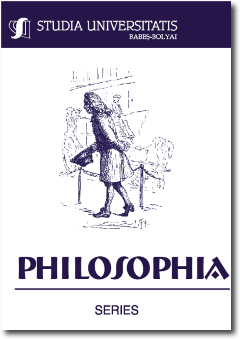APORIA, SOPHISM AND REFUTATION IN ARISTOTLE
APORIA, SOPHISM AND REFUTATION IN ARISTOTLE
Author(s): Iovan DreheSubject(s): Philosophy
Published by: Studia Universitatis Babes-Bolyai
Keywords: aporia; dialectic; sophism; contradiction; refutation.
Summary/Abstract: The main purpose of this essay is to spread some light upon a particular problem situated at the crossroads between the problem regarding paradoxes and the philosophy of Aristotle. Along the way I will try to show that in some cases the Stagirite is solving the aporias, primitive forms of paradoxes that can be found in presocratic and classical Greek philosophy, by using his own method of dialectic. The main instrument of this endeavor is to seek out conceptual distinctions and to find the different meanings of certain words that can lead the thinker into an aporetic state of mind. Another way to solve an aporia is to demonstrate that one part of the contradiction, in which the paradox actually consists of, is true or false, this way validating or invalidating the other. This is what is called a refutation. I have put forward a minimal list of possibilities of refuting the weak part of a contradiction, mainly based on the relations found in the square of opposition.
Journal: Studia Universitatis Babes-Bolyai - Philosophia
- Issue Year: 55/2010
- Issue No: 2
- Page Range: 73-83
- Page Count: 11
- Language: English

